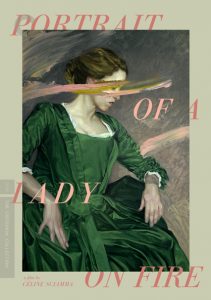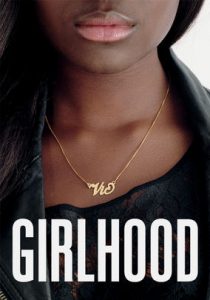Portrait of a Lady on Fire-2019
Director Céline Sciamma
Starring Noémie Merlant, Adèle Haenel
Scott’s Review #1,114
Reviewed February 19, 2021
Grade: A-
A film with tremendous artistry and a cool LGBTQ+ vibe, gay director Céline Sciamma delivers the goods with interesting finesse in Portrait of a Lady on Fire (2019).
She takes modern-looking actors and transplants them to the era of France during the late 18th century.
The film tells the story of a forbidden affair between an aristocrat and a painter commissioned to paint her portrait.
The viewer will ask themselves the following questions. What would become of two young gay women in this long-ago age? How many people repressed their true feelings and desires because of the times they lived in?
Would their different classes and backgrounds cause strife within their burgeoning relationship? I know I constantly asked myself these questions.
To those with limited cinematic patience, be forewarned. A Portrait of a Lady on Fire is plodding.
I didn’t mind this aspect, but some might. The payoff is not bombastic in an act of violence or an explosion sort of way, but it’s well worth the effort put in.
In a common approach in modern film that is feeling more standard than special, the first scene often precedes the events in the rest of the movie, so that we know how the events will turn out. But we do not know the hows and the whys.
It is immediately assumed that one character has suffered some loss or misfortune related to a painting.
Painter, Marianne (Noémie Merlant), is summoned to a remote island inhabited by very few people. She is commissioned to paint the wedding portrait of Héloïse (Adèle Haene), who is destined to be married to a nobleman in Milan, Italy.
Héloïse is depressed and despondent, wanting nothing to do with her intended, whom she has not met.
The portrait is a gift to the never-seen husband-to-be. It is revealed that Héloïse’s sister leaped to her death from the cliffs on the family estate, so it’s suggested throughout that she may suffer the same fate.
Needless to say, Marianne and Héloïse fall madly in love.
Their love is hardly ever a question, as the chemistry is immediately noticed. Sciamma, who wrote the screenplay, avoids stereotypes that would give away the sexuality of the main characters. They are not butch nor do they possess masculine qualities.
Do we wonder if they are bisexual? They never struggle with their sexuality, a dramatic cliche in other LGBTQ+ films.
I adore this because it makes the love story more powerful, rather than one character pursuing the conflicted other.
As brilliant and artistic as I found Portrait of a Lady on Fire to be, there are a couple of unexplained or unclear aspects. I am not even sure how they relate to the main story.
Waifish housemaid Sophie has an abortion with assistance from Marianne and Héloïse. Later, the three go to a bonfire gathering where women sing, during which Héloïse’s dress briefly catches fire (just as shown in the painting featured in the beginning).
When Sophie is having the abortion, there is an infant and a child nearby. Are they her children? Who are the women who sing?
I didn’t understand the point of these items.
Fortunately, these missteps can be forgiven for the grander piece is exceptional filmmaking. The final shot of Héloïse sitting in a theater is phenomenal and borrowed from Call Me By Your Name (2017), which featured an identical scene.
The camera focuses on the face of actress Haene as she conveys a range of emotions during the flawless scene. What a win for an actor!
Despite some side story flaws, I adored Portrait of a Lady on Fire (2019).
The film is exceptionally shot, and almost all shots could be portraits in their own right. Charming are the beach sequences, as when Marianne and Héloïse first ignite the flames of their passion.
My takeaway is that it tells the story of fate, but doesn’t feel like a downer. Instead, it feels like life.
Independent Spirit Award Nominations: Best International Film

